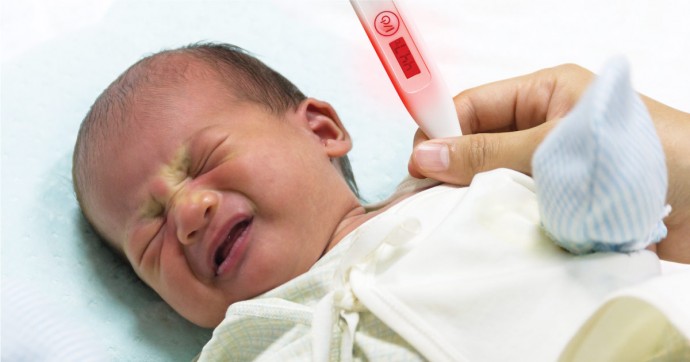Meningitis is an acute inflammation of meninges, the protective membrane surrounding the brain and spinal cord. Meningitis may be caused by infection with bacteria or viruses, and other non-infectious causes. Bacterial meningitis can be life-threatening especially when caused by several common strains, e.g. S. pneumoniae, N. meningitidis, H. influenzae.
Fact or fiction?
You may have heard about meningitis and how dangerous it can be. However, there are misconceptions to set straight.
1. Meningitis is easy to recognise and diagnose, I would know immediately if my child is infected.
Meningitis is easy to misdiagnose as its early symptoms, such as high fever and headache, are similar to flu and other common illnesses. Children may exhibit slightly different symptoms than adults. Symptoms may develop over several hours or up to a few days. If any of the following symptoms manifest in a sudden or severe way, seek immediate medical attention. Early treatment is vital.
Those older than 2 years old:
- High fever
- Severe headache
- Stiff neck
- Confusion
- Nausea or vomiting
- Sleepiness and lethargy
- No appetite
- Sensitive to light
- Purplish rash
Newborns and infants:
- High fever
- High-pitched crying
- Poor feeding
- Stiff body and neck
- Excessive sleepiness and irritability
- Bulging fontanelle (soft spot on top of the head)
2. Only babies and young children can get meningitis, so my teenagers are safe.
Meningitis is most common in infants below the age of 1, but meningitis can affect all ages. The higher-risk population include those who skipped mandatory vaccinations, young children, adolescents, older adults, pregnant women, people living in close quarters (students in dormitories, children in boarding schools or child care centres), and people with a compromised immune system (e.g. people with AIDS/diabetes).
3. Meningococcal vaccines can cause meningitis.
Vaccines that prevent meningitis are proven safe and do not cause meningitis. Similarly with all vaccines, there may be mild side effects such as redness/swelling at the injection site or fever, but these are rare.
4. Meningitis is not contagious.
Meningitis-causing bacteria cannot live long outside the human body, but it can still spread through air droplets and direct contact with an infected person. Being exposed to a patient’s secretions (e.g. coughing, sneezing, kissing, sharing utensils, cigarettes or toothbrushes), can get you infected. However, a casual contact such as shaking hands or being in the same room does not spread meningitis.
5. My family members and I have taken the meningitis vaccine, so we are completely protected.
One vaccine cannot give full protection against all meningitis-causing bacteria. Different vaccines protect against different bacteria strains, such as the quadrivalent meningococcal conjugate vaccine (MCV-4), 13-valent pneumococcal conjugate vaccine (PCV10 and 13), or Haemophilus influenzae type B vaccine (HiB). The HiB vaccine is included in our National Immunisation Programme (NIP) and given free to all Malaysian infants in 4 doses. Meningococcal vaccine is mandatory for Muslims going for Hajj or Umrah. The government is currently working on making PCV vaccine mandatory and to be included into the NIP. For now, the vaccine is available at private hospitals and clinics.
6. A way to confirm meningitis is by looking for the presence of rashes.
The infamous purplish rash is not always present in meningitis and usually shows up late. It indicates the infection has spread to the blood. Symptoms can develop very quickly and cause death in less than 24 hours. Never wait for the rash to appear before seeking medical attention.
Meningitis may not be a common disease but should not be taken lightly, as it can result in devastating consequences. Complications include hearing loss, learning disabilities, seizures, amputation, and worse of all, death. The fatal nature of meningitis means that prevention by vaccination and by practising good hygiene is the best choice for parents and their children.
An educational contribution by Malaysian Paediatric Association.








Comments